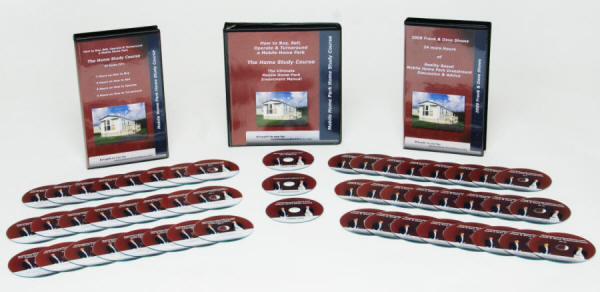CREonline, a real estate website that has long promoted Lonnie Scruggs’ book (or is it novel?), has recently removed the forum that Lonnie used to moderate and put up the following comment:
“We want to express our sincere appreciation to Lonnie Scruggs and Tony Colella for their many, many years of contributions to this Mobile Homes Forum and to the CRE Online website.”
We’re not sure if this suggestion that Lonnie has retired is actually true, but since we’ve not heard anything from him in a long time, we’ll have to take their word for it. So what is the legacy of Lonnie Scruggs?
The concept of making money buying and selling mobile homes
Lonnie was an early pioneer of the concept of buying and selling mobile homes for profit. And, to that end, most park owners owe him a debt of gratitude, because every home that one of his readers brought into a park made the park owner probably $20,000 in added value to their community. In fact, Lonnie was so early in his promotion of this concept, that it became known as “Lonnie deals”, in the same way that a copy machine became known as a Xerox machine, no matter who made it. To this day, Lonnie dealers are a sought after way for park owners to fill vacant lots and save themselves thousands in having to bring in their own homes.
A cheap way to spread the word
One of the hallmarks of Lonnie’s work was a cheap price. The book is still sold for around $30. Due to the low price, many people bought a copy as an impulse purchase, and later bought a mobile home or two after reading it. It definitely was the first main-stream product to promote this niche. Could Lonnie have charged more? We’ll never know, but by making the book in the realm of something you’d find at Barnes & Noble, it definitely opened the idea up to more of a mass market than it would have been at a higher price.
The introduction of a lower price point to invest in the affordable housing sector
Mobile home parks have long required significant capital to buy and operate. But mobile homes, under Lonnie’s tutelage, could be bought for maybe $1,000. As a result, people who felt excluded from mainstream mobile home park investing suddenly had a lower cost outlet. Many mobile home park owners, in fact, began as Lonnie dealers and eventually advanced into park ownership.
But there were flaws
We’ve been very vocal over the years in trying to point out the flaws – and the solutions – to Lonnie’s original business model. I, in fact, asked Lonnie about two of the biggest problems at an industry trade show about a decade ago. I was standing next to Lonnie, about to go on stage, and said “Lonnie, how come your book never addressed the cost to renovate the home or what happens when the buyer trashes the place and runs off?” And Lonnie said to me “that isn’t how it worked back in the 70’s when I wrote the book”. And maybe that’s true – the quality of the homes and customers has deteriorated significantly in many markets over the past 40 years. We are so enthusiastic about trying to correct these problems – because the more Lonnie dealers out there the more homes we all get in our parks – that we even built an entire website devoted to analyzing the solutions to flaws in Lonnie’s business model, which is www.MobileHomer.com. If you’ve not ever visited the site, you should check it out.
But all things must come to an end
The challenges to Lonnie’s business model continue, most notably with the development of the SAFE Act. In the future, we see a hybrid of Lonnie’s original model grafted onto all sorts of updated fixes. Like any pioneer, there can be no question that Lonnie was fairly advanced in his thinking at that time. But the original model, as addressed in the original book, cannot go on without serious revision. And apparently, Lonnie is no longer working on that new solution, having chosen retirement instead. So here’s to Lonnie, wherever you are today.





